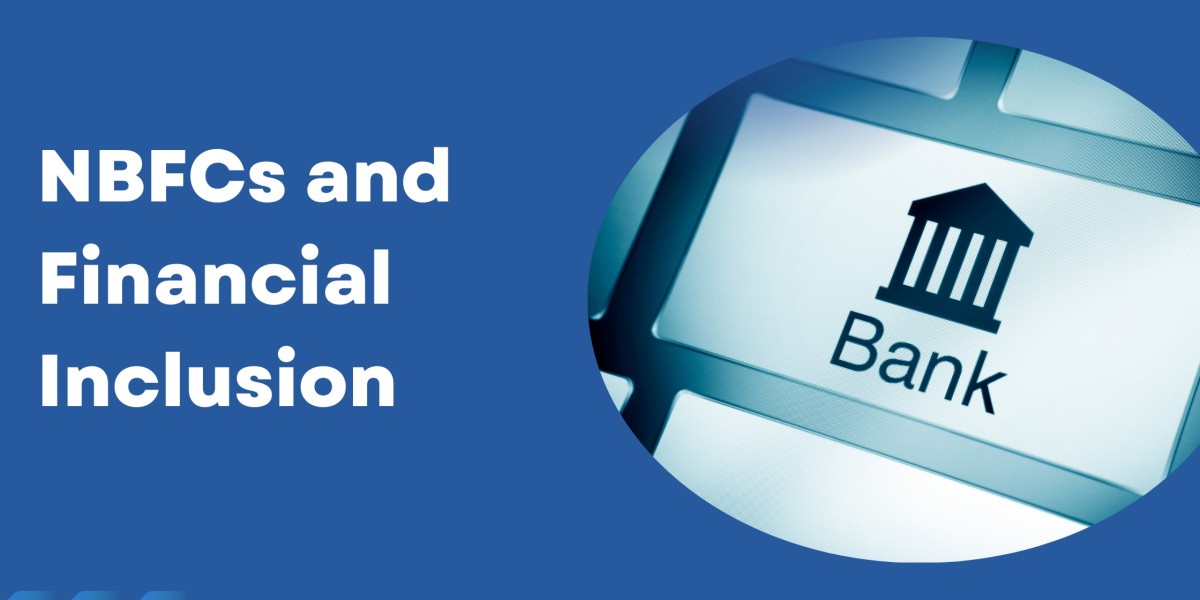In a country as diverse as India, ensuring that everyone has access to financial services is a significant challenge. Financial inclusion means bringing essential banking and financial services to everyone, especially those living in rural or underserved areas. However, for many people in India, traditional banks are often out of reach due to distance, paperwork, or lack of a credit history. This is where Non-Banking Financial Companies, or NBFCs, come into play.
NBFCs are financial institutions that provide various banking services but don’t hold a banking license. In recent years, NBFCs have been playing a crucial role in advancing financial inclusion in India by filling gaps left by traditional banks. This article explores how NBFCs are bridging the credit gap, helping millions of people access credit and other financial services.
What Are NBFCs?
NBFCs, or Non-Banking Financial Companies, are financial institutions that offer services like loans, credit, and asset financing without a banking license. Unlike banks, NBFCs cannot accept demand deposits (like savings accounts or checking accounts). However, they engage in lending, investment, and other services, making them highly valuable in promoting financial access across India.
Some key features of NBFCs include:
- Loan Provision: NBFCs provide loans to individuals, businesses, and even micro-entrepreneurs who may struggle to secure funding from banks.
- Flexible Requirements: NBFCs often have less stringent eligibility criteria than traditional banks, making it easier for people without a high credit score or formal employment history to access loans.
- Specialized Services: NBFCs frequently target specific customer segments, such as small businesses, low-income individuals, and farmers.
Many NBFCs also explore specialized licenses, such as the NBFC Account Aggregator License Registration, which allows them to provide consolidated financial data for customers. This license can enhance financial inclusion by helping individuals and businesses manage their finances more efficiently and get tailored loan products.
Why Financial Inclusion Matters
Financial inclusion is critical for a country’s economic growth and social stability. It provides individuals with the resources and tools to save, invest, and improve their financial well-being. Access to credit, in particular, can be life-changing for people looking to start a business, expand farming operations, or handle emergency expenses. Yet, traditional banks face limitations in serving everyone due to complex documentation requirements, strict credit checks, and geographical constraints.
Nearly 20% of India’s population remains unbanked or underbanked, many of whom live in rural areas with limited access to banking facilities. Financial inclusion enables individuals to participate actively in the economy, contributing to national growth. By providing services that cater to the underserved, NBFCs are helping to make financial inclusion a reality for more Indians.
How NBFCs Are Bridging the Credit Gap
NBFCs are bridging the credit gap in various ways, and their innovative approaches are bringing financial services to people who were once left out of the financial system. Here are some significant ways NBFCs are promoting financial inclusion:
1. Simplified Loan Processes
NBFCs often provide a more straightforward loan process compared to banks. Many traditional banks require extensive documentation, lengthy approvals, and high credit scores to approve a loan. In contrast, NBFCs offer streamlined loan application processes, which reduce paperwork and waiting times. This enables small businesses, farmers, and individuals with little financial history to access credit more easily.
2. Focus on Micro and Small Loans
For many people, a small loan can make a big difference. NBFCs have recognized this need and focus on providing micro and small loans tailored to small business owners, farmers, and low-income families. Micro-loans help small businesses buy equipment, cover operating costs, or even expand their operations. By focusing on smaller loan amounts, NBFCs are empowering people who may not need large loans but still require financial assistance.
3. Catering to Rural and Semi-Urban Areas
NBFCs understand that rural and semi-urban areas are often underserved by traditional banks. To address this, many NBFCs establish operations in these areas to offer credit and other financial services. By having a presence in these regions, NBFCs make it easier for people to access financial assistance without traveling long distances. They often use local agents and community partnerships to reach even the most remote areas.
4. Customized Products for Diverse Needs
People’s financial needs vary widely based on their profession, income level, and geography. NBFCs provide a range of customized products tailored to these specific needs. For example, they might offer loans for agricultural equipment, vehicles, or housing improvements. By offering these specialized products, NBFCs address the unique needs of underserved individuals, allowing them to invest in areas that will improve their quality of life and productivity.
5. Digital Innovations for Better Access
With technology playing a significant role in the financial world, NBFCs are embracing digital tools to increase their reach. Many NBFCs now offer online application processes, mobile lending, and digital platforms that allow customers to access services remotely. Digital solutions make it easy for individuals to apply for loans, make payments, and access their accounts, even if they live far from a physical branch. This approach is especially useful for people in rural areas who may have limited access to traditional banking facilities.
6. Less Dependence on Credit History
Traditional banks rely heavily on credit scores to approve loans, which makes it difficult for people with limited or poor credit histories to secure funding. NBFCs often assess an applicant’s repayment ability through alternative methods, such as evaluating income stability and cash flow. By focusing less on credit scores, NBFCs are able to serve a broader customer base, including individuals who may have been previously rejected by traditional banks.
NBFC Registration and Takeover by RBI
To operate legally and ethically, NBFCs must complete a thorough NBFC Registration process with the Reserve Bank of India (RBI). This registration process ensures that NBFCs are compliant with regulatory standards and financially stable. Additionally, NBFCs looking to expand or acquire other companies must go through an RBI NBFC Takeover process, which is closely monitored by the RBI. The RBI takeover regulations ensure that NBFCs maintain high standards in financial services and customer trust, which is essential for maintaining a stable and inclusive financial ecosystem in India.
Advantages of NBFCs in Promoting Financial Inclusion
NBFCs bring several advantages to the table that help them promote financial inclusion effectively:
- Higher Risk Tolerance: NBFCs are generally more willing to take on risks, allowing them to serve customers who may not meet strict banking requirements.
- Faster Loan Processing: With less bureaucracy and streamlined processes, NBFCs can process loans faster, which is essential for small businesses and individuals needing urgent funds.
- Accessible Interest Rates: Many NBFCs offer competitive interest rates, making their loans more affordable for low-income borrowers.
- Innovative Loan Models: NBFCs frequently adopt unique loan models, like group lending, which help mitigate risks and encourage collective repayment accountability.
Challenges Faced by NBFCs in Financial Inclusion
While NBFCs play a crucial role in financial inclusion, they also face challenges:
- Regulatory Hurdles: NBFCs are subject to numerous regulatory guidelines, and sudden changes in regulations can impact their operations and financial health.
- High Operating Costs: Serving rural and remote areas can be costly, especially without a large branch network.
- Funding Challenges: Unlike banks, NBFCs cannot accept deposits, which limits their funding sources. They often rely on external loans, which can be more expensive.
- Risk of Non-Payment: Since NBFCs cater to underserved communities with lower credit histories, they face a higher risk of defaults.
Despite these challenges, NBFCs continue to innovate and find solutions that allow them to bring financial services to more people in need.
NBFCs and Government Support
The government has recognized the role of NBFCs in advancing financial inclusion and has introduced several supportive measures. Initiatives such as the Priority Sector Lending scheme, where NBFCs receive assistance in extending loans to critical sectors, encourage NBFCs to serve more people. Additionally, the Pradhan Mantri Jan Dhan Yojana (PMJDY) aims to open bank accounts for everyone, but NBFCs are still integral to providing credit services to PMJDY account holders who require funds beyond basic banking.
The Road Ahead for NBFCs in Financial Inclusion
NBFCs have made great strides in bridging the credit gap, but there is still more work to be done. Moving forward, NBFCs can continue to innovate by using technology to reduce operational costs and reach more underserved areas. Collaborating with fintech companies, leveraging AI for credit assessment, and expanding digital financial literacy programs could help NBFCs make an even bigger impact.
With a growing focus on financial inclusion and government support, NBFCs are expected to play an even more substantial role in achieving financial inclusion across India. Their ability to adapt and cater to diverse customer needs positions them as key players in shaping a more financially inclusive India.
Conclusion
NBFCs have emerged as critical partners in promoting financial inclusion in India. By offering simpler, more accessible, and diverse financial products, NBFCs provide millions of people with opportunities to improve their lives through access to credit and other financial services. While challenges remain, the future looks promising as NBFCs continue to innovate and expand their reach, making financial inclusion a reality for many who were previously left out.
Read more: How to apply BIS Registration Certificate










